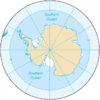Attributes
- Aims for lowest real time / frame count
- Takes damage to save time
- Glitches into warproom
Overview
This is an improved any% TAS of Hagane, which improves the currently published run by 33827 frames after discovering a rabbit hole to travel through time and space.
In this game, it's important to optimize both Hagane's positioning and the screen's positioning, as it sometimes triggers important events faster if the screen reaches certain area earlier.
Version choice
- NTSC-J was selected for this project, because I discovered that after pressing "start", main menu fadeout lasts 60 frames less than on NTSC-U version.
- NTSC-J also contains an undocumented hard mode code, which I discovered, which can be useful for tasing hard mode without SRAM preparation. No codes were used during this TAS.
- NTSC-J loses 0-2 frames during stage loads vs NTSC-U, but it doesn't occur frequently enough to make it slower.
- Even if the whole game is tased without warps, NTSC-J still wins over NTSC-U by over 30 frames.
Movement, tricks & glitches
Movement speeds
- Sliding = 3 pixels per frame, lasts 32 frames. 1 frame of walking is required between slides. By far the fastest movement method. Cannot be performed on upward slopes, so reverse tumbling is usually the best alternative for clearing those.
- Reverse tumbling = 3 pixels per frame, takes 3 frames to initiate.
- Spinjumping = 3 pixels per frame, lasts 48 frames. Loses variable amount of pixels before and after use depending on room structure.
- Walking = 2 pixels per frame BUT moves screen 4 pixels per frame if Hagane isn't at the edge of the screen. All 3-speed moves only move the screen 3 pixels per frame, so this is often used to shift the screen forward right before an auto-screen-scrolling cutscene.
- Tumbling = same as walking.
- Midair = 1 pixel per frame.
- Hanging from ceiling = same as walking.
Wall climbing & zipping
When Hagane is using the grappling hook and moving backwards, collision detection is disabled. This can be abused to quickly climb upwards by rapidly entering walls and jumping off of them before they eject Hagane out.
Alternatively, ejection can be used to quickly zip forwards during over-or-underhanging edges. Zipping is the fastest way to move, but is not the fastest way to advance the screen's movement, as the screen only moves 1 pixel per frame forward during zipping. Therefore, it is sometimes faster to not zip and maximize the screen's movement speed instead.
Screen-squishing
When Hagane is using the grappling hook and moving backwards or is being hit by an enemy (see stages 1-2 and 2-2), screen keeps moving towards that direction, no matter what.
Even after a wall ejects Hagane out, screen is not adjusted accordingly. This makes it possible to squish Hagane between the screen and the wall, making it possible to get out of the map in several locations,
and perform new advanced zips. Moreover, it removes the requirement of over- or underhanging ledges to start a zip. To keep hagane alive inside walls, you must mash jump at least once per 5 frames.
Ground zipping
Although very rarely useful, it is possible to perform a minimal zip forward by performing a midair downward kick on a declining slope, and then performing a frame-perfect ground slide as Hagane lands. This saved 1 frame in stage 1-1.
Stage 1-4 zipping
During stage 1-4 it is possible to zip by facing backwards and letting the autoscroll push Hagane through walls.
Screen-adjustment-cutscene trigger skip
An interesting mechanic that was only implementable in stage 1-1, as there's a certain height where the screen-adjustment-cutscene will not trigger anymore. By spinjumping above the trigger in order to push the screen further much faster - with 3 pixels per frame speed as opposed to the usual 1 pixel per frame (auto-scroll) speed - a bunch of frames will be saved.
Lag reduction
Whenever lag would be caused by sliding, spinjumping usually reduces it, while also almost being as fast of movement. Other techniques include staying crouched and eliminating as many enemies from the screen as possible.
Categorization
Being able to access the warproom shortens the game considerably, as about 70% of the usual gameplay vanishes. Thus my suggestion is to have "warps" and "warpless" categories separated.
Perhaps a "warpless" TAS should also be played on hard difficulty.
- 1-2: 925 frames were eliminated (1-3's exit touch is used as the comparison point). With a clever use of screen-squishing it was possible to zip-skip the frog miniboss, and also get out of the map and reach stage 1-3 and its exit in a marvelous way! It appears, that stages 1-2 and 1-3 are connected into the same level, which made this possible.
- 1-3: Huh, where did 1-3 go?
- 1-4: Autoscroller... surely unimprovable or? Wrong! Letting the autoscroll zip Hagane through the floor/wall near the stage's exit saved 4 frames!
- 2-2: 1000 years were saved here (~32837 frames, this one is off by 10-20 frames due to NTSC-U vs NTSC-J stage load time differences) by using the newly discovered screen-squishing technique. I discovered that there exists a warproom within stage 2-2, which normally is only reachable by using a NTSC-J exclusive config menu code. Being able to select a level means Hagane can travel through time and space straight into the final boss!
- Final Boss: Better lag reduction saved 5 frames.
Thanks to
- Omnigamer for providing various useful info about the game.
- Previous TASers (Tiger & Heisanevilgenius) for having something to compare against
feos: While using the level select room would be banned if it was done via
intended sequence, glitching into it is fair play unless all it does is making gameplay easy (see the bottom of
this post for more insight).
In this run, the player quite obviously clips through the wall, and the level select room happens to be embedded into the level layout directly. I didn't notice any inputs that didn't look like regular movement to enter the wall.
Accepting as a new branch that is now fastest completion.











































